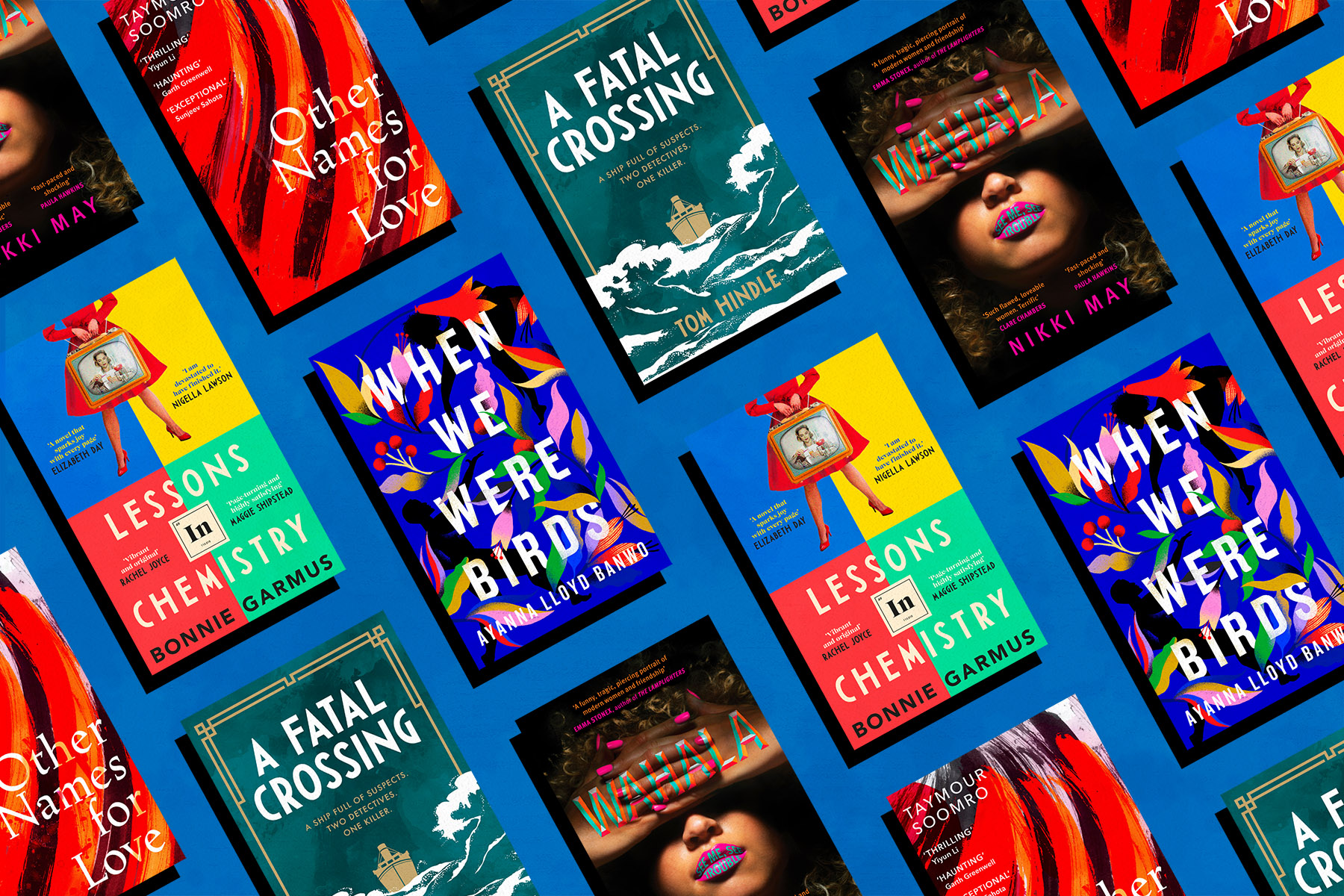
- Home |
- Search Results |
- The best debut fiction to read this spring
A chemist who becomes a trailblazing TV star. A love story set in an Italian town ran by the mafia. A passenger ship trapped afloat in a war-torn future. There are many brilliant stories waiting to be discovered in our stand-out debut novels of 2022, and what better way to hear about them than from the authors themselves?
Here we get to know 12 Penguin writers in that most exciting of career moments: waiting to release their debut novel into the world. Here, they discuss how they got their ideas, which other authors inspire them and why their book might just be your favourite breakout read of the year.
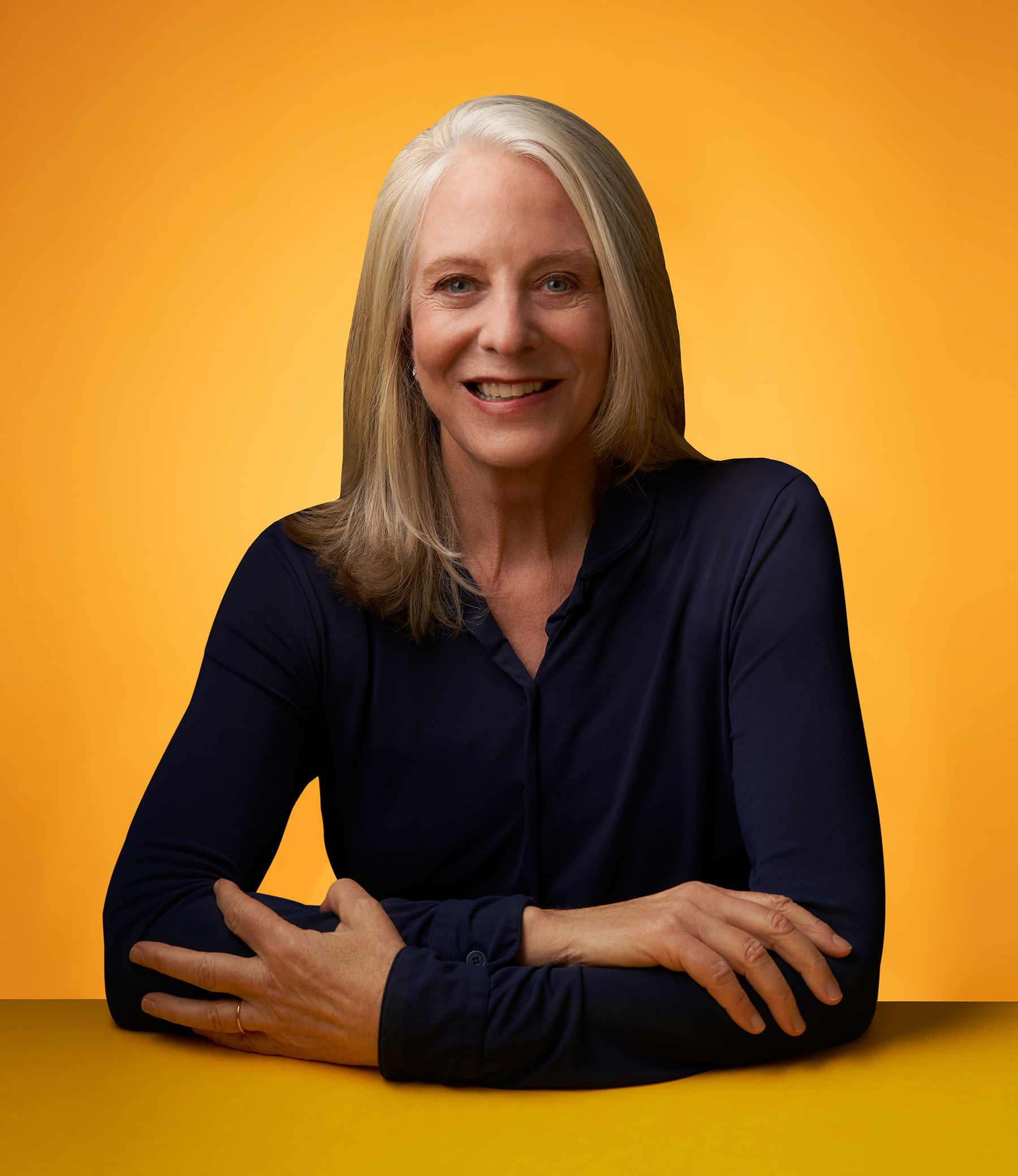
Bonnie Garmus – Lessons in Chemistry
After a meeting at work left her in a bad mood, 64-year-old Bonnie Garmus decided it was time to finally put pen to paper: “I sat down and felt like Elizabeth was there with me and I began to write my first chapter.” The result was Lessons in Chemistry, a story about 1960s America in which Elizabeth Zott, a talented chemist, is forced out of her research job and becomes the star of a popular cooking show. But instead of teaching housewives how to make dinner, she teaches them how to change their lives.
Another inspiration for the Garmus was rereading Betty Friedan’s 1963 classic The Feminine Mystique, which prompted memories of her mother and inspired her novel’s setting. “I could remember these housewives having to do so much work and take care of so many kids, and it was never recognised as work,” she says. As a mother of two daughters, she wanted to write something that has resonance for women today, too: “It occurred to me that my daughters weren’t going to have the same job opportunities or be paid the same as men. And they would always, always have to walk home looking over their shoulder. And that’s still true in every corner of the world today."
Your debut novel is being adapted for Apple TV. How does that feel?
It's over-the-top. It's really wonderful, though. It is like giving the child you've raised over to someone else to finish, so that's a little frightening. I have had the pleasure of working with Susanna Grant, who wrote the screenplay for Erin Brockovich, and Brie Larson will star as Elizabeth. So I think I'm in really good hands.
Tell us about an unlikely influence on your book
I don’t recognise the people in our governments as people who are working in everyone's best interests. We're not really thinking of science in a world which operates on science. It does not operate on religion, or misogyny, or racism or anything – the Earth spins because of science. And I wish that we would respect those laws of science – follow them and allow that to shape our society.
Which writer do you most admire and why?
Oh, I have a huge list. As a kid the authors I admired the most were Roald Dahl and Louise Fitzhugh, who wrote Harriet the Spy. But then I read Dickens and Tolstoy. I love people who write big stories: Donna Tartt; and oh, gosh, Hanya Yanagihara. I think these people are not only tremendous storytellers, their craft is impeccable. And the craft in a novel is what attracts me to a book. And I love looking at their sentences on the page – if I feel the rhythm, I know I'm going to stick with it.
Lessons in Chemistry is out 5 April
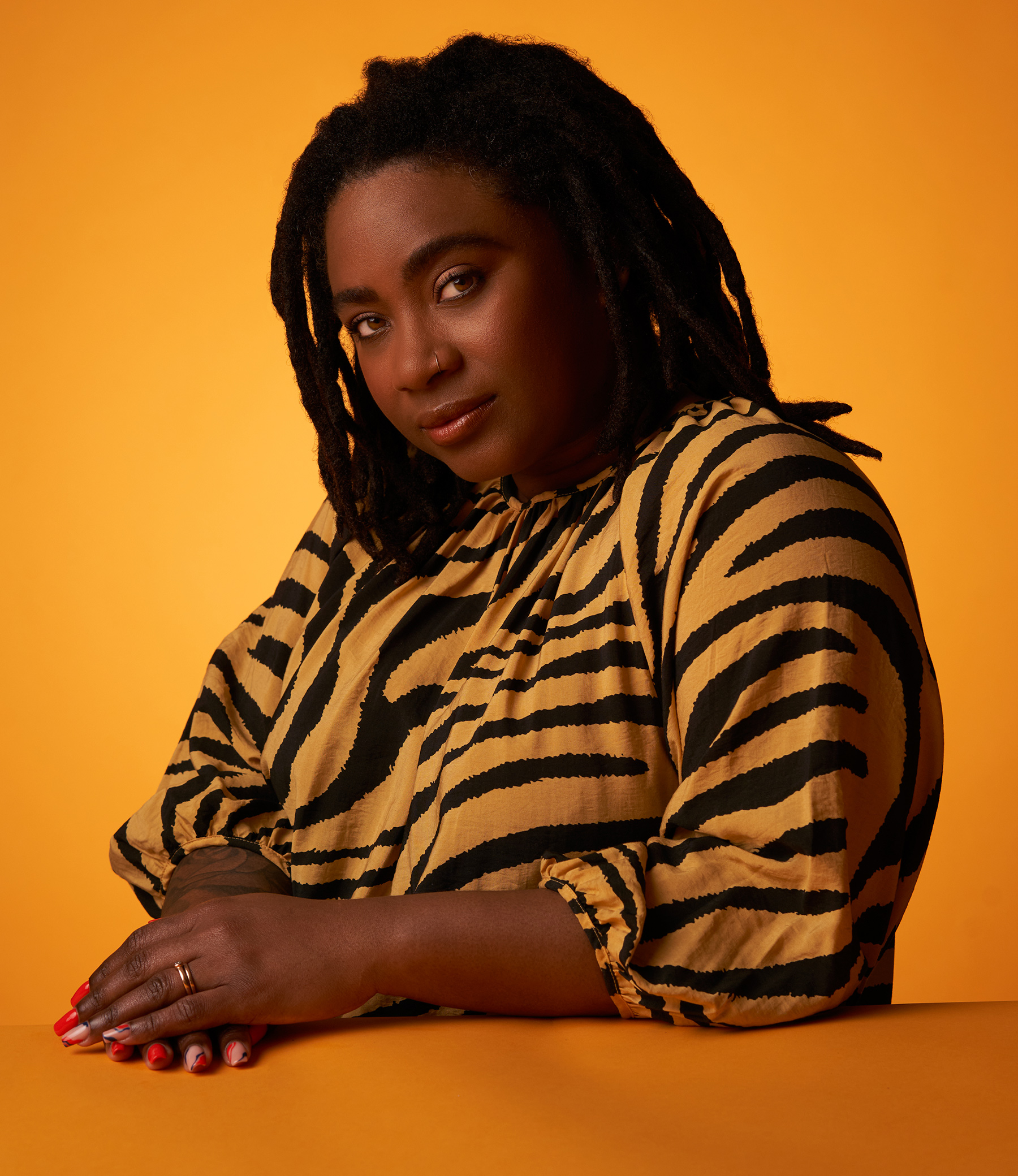
Ayanna Lloyd Banwo – When We Were Birds
It’s not often a debut novel wins comparisons to a release as momentous as Arundhati Roy’s The God of Small Things, but Ayanna Lloyd Banwo’s atmospheric When We Were Birds has done just that. “It’s about two young outsiders: Darwin, who has recently become a gravedigger, and Yejide, who will inherit a family's affinity with the dead,” says the writer, who is from Trinidad & Tobago. “They're connected to the dead as much as they are connected to each other and find that their lives and the lives of the whole city – the living and the dead – intertwined with their love story.”
The 41-year-old moved to the UK to study creative writing, and while she started the novel in 2018, she didn’t land a publisher until 2020, while she was separated from her partner by the pandemic (she was in Norfolk; he was in London). “It was extremely odd. We wanted to celebrate but we didn’t feel comfortable getting on the train, so I just sat in my flat and had a cup of tea!”
How did you get the idea for your book?
I had a lot of deaths in my family. I lost my mum, my dad and a grandmother over three years, as well as having my own illness. I spent maybe four to five years in hospitals, morgues and cemeteries really consumed not just by grief, but the work of death. I thought about who does that work and how; the fact death and dying is a very spiritual, psychological and intense experience, but also a very everyday, prosaic, mundane experience. I always liked cemeteries also; I’ve always been interested in them. There’s one in Port of Spain where probably everybody in my maternal line is buried, so it's a family archive.
Which writer do you most admire and why?
Now I’ve suddenly become an immigrant writer, I've been re-reading Create Dangerously: The Immigrant at Work by Edwidge Danticat. The immigrant story, particularly for writers or artists, is often about someone who has spent a longer period of time outside of where they grew up, caught between two cultures. But for me, I was fully formed [when I arrived in the UK], so I still don't feel like an immigrant; I feel like somebody who happened to be here to do school. So I found that book to be pretty grounding.
What’s your most surprising passion or hobby?
I like a pub. I like a pint. That's something that I've enjoyed a lot being in England. I like an old pub with the same old husband and wife that sit at that table in the corner. I like a nice roast. I found it very surprising how much I enjoyed something that was very different in my head. I just find them very warm and comfortable. I like writing in pubs also; I’ll sit and take notes, just people-watching and no one tells you to leave, even if you haven't bought a pint for the last half hour.
When We Were Birds is out 10 February
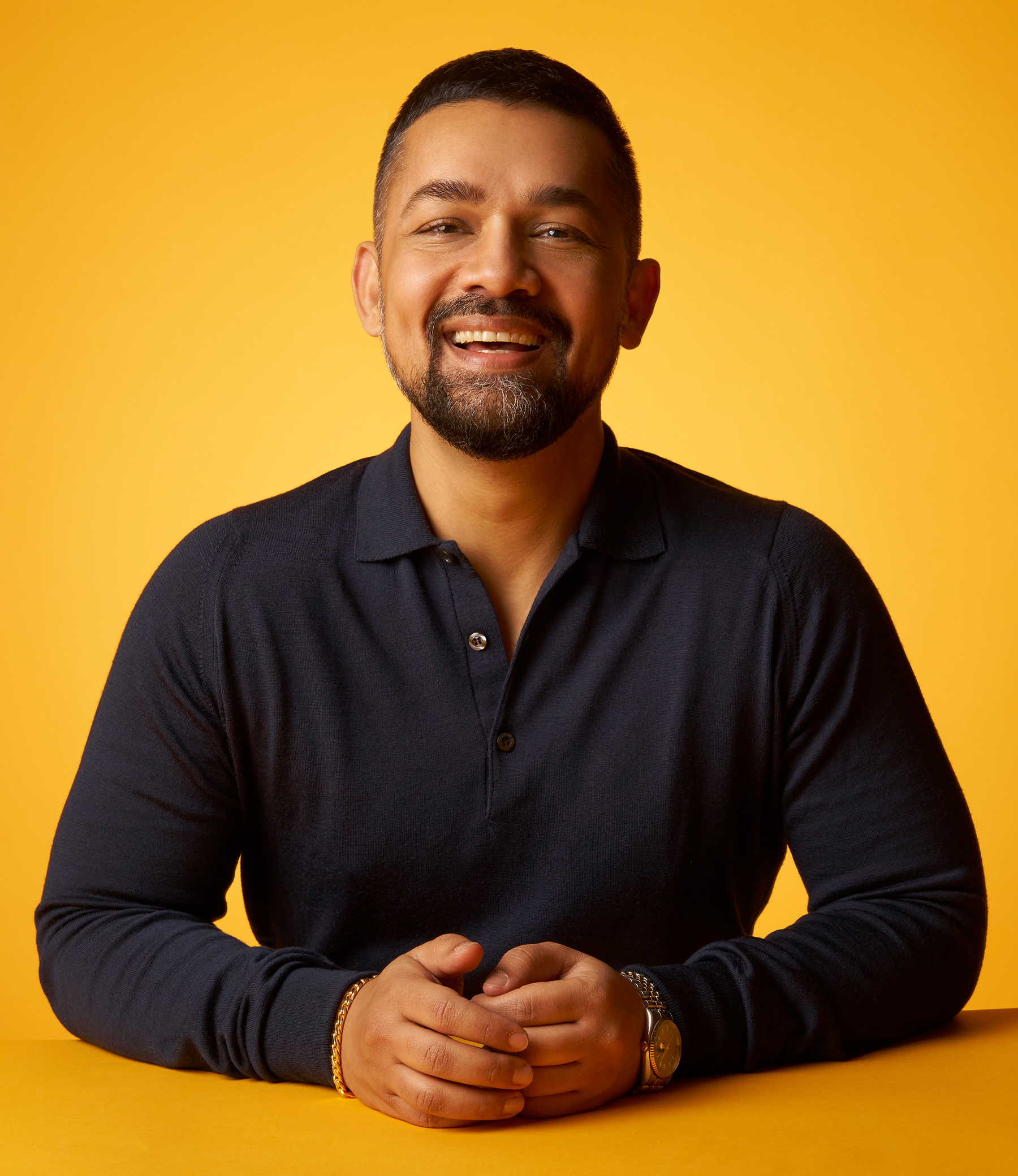
Taymour Soomro – Other Names for Love
Other Names for Love is Taymour Soomro’s debut, but it isn’t his first attempt at writing a novel. That honour belongs to a self-described “terrible book” he wrote when he was younger that he says was “thankfully” never published.
“It was a terrible book, in part because I had not come out to my family at that point. I was really afraid, terrified of outing myself in my fiction, so I wrote as far away from myself as possible. It wasn't really until after I came out to my parents that I gave myself permission to write more freely.”
That artistic freedom brought about his beautiful new novel about a powerful landlord who takes his sensitive teenage son to a country estate in rural Pakistan to toughen him up. There, in Soomro’s words, “the father ends up learning the limits of his own power, and the son ends up falling in love with the son of a neighbouring landlord; it's about the father and son’s relationship, but it's also about a romantic relationship, and maybe how romantic relationships push up against family relationships.” Part coming-of-age tale, part love story, Other Names for Love will appeal to anyone who’s ever had to navigate the narrow path between family and selfhood.
Which writer do you most admire and why?
It's really difficult to choose one, but I love Chekhov, partly because I studied Russian at school. I think there was something that really resonated with me partly because there all of these old estates; in The Cherry Orchard, there's that old estate where the family are having to chop down those trees because the wealth has gone. That moment felt very true to something I knew about Pakistan. In his plays and the short stories as well, Chekhov deals with these sort of quiet failures – there's a kind of quietness and an everydayness to them that doesn't conflict somehow with the kind of deep emotion that they also have.
What is your ideal writing scenario?
I have really wonderful friends and family, and I tend to fill my life with seeing everyone all the time. So my ideal writing scenario is getting away. Right now I'm at this wonderful chateau near Paris, which is a kind of co-living, co-working space; it's really conducive to work because everyone is passionate about the work they do. There's also nowhere else to go and there's nothing else to do. I went to Seville to write the novel. That's something I've done quite often, is to go away to write.
What was the hardest part about writing your book?
It was very close to me; I stole so much from my life. So, the house in Karachi which features in the book is also my grandparents’ house and, you know, the son in it sort of originates from me and the father really originates from my grandfather. So in a way, fictionalising was really difficult because when I started writing, I felt really constrained by the truth. I had to just write multiple iterations of the novel to get further and further away from myself, so that the novel would have a kind of independence to it.
Other Names For Love is out in July
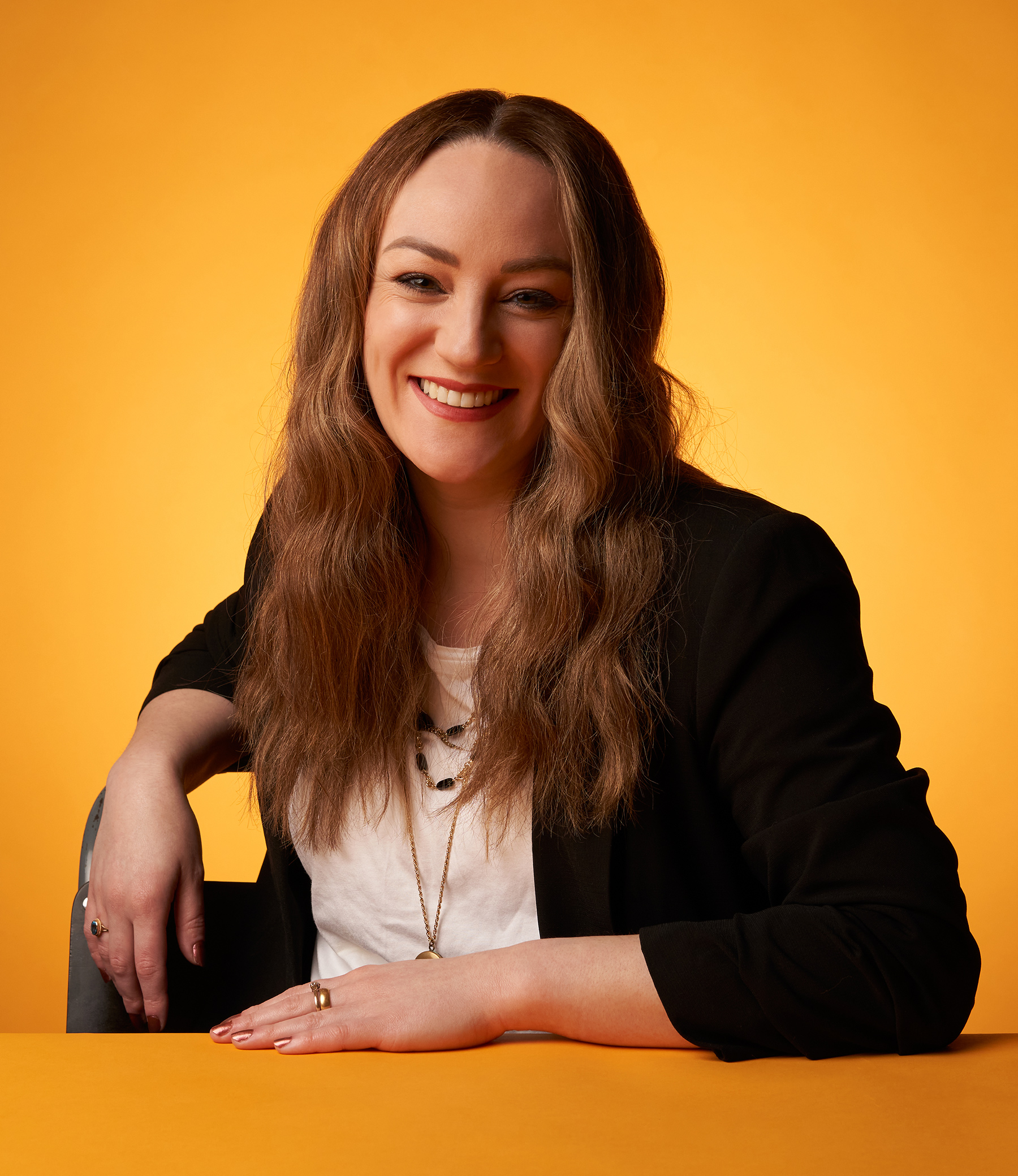
Susan Stokes-Chapman – Pandora
Susan Stokes-Chapman has held a life-long interest in the Georgian era, something she puts down to Andrew Davis’s 1995 adaptation of Pride and Prejudice. “Initially, it was all about the romance between Darcy and Elizabeth” she recounts, “but you also see this glimpse of the seedy underbelly of society, and of course, Jane Austen had a lot of dark subject matter disguised amongst the smelling salts and finery. That was what started to appeal to me.” Setting her own novel, Pandora, in the Georgian era was a no-brainer.
Weaving in the ancient Greek myth of the same name, Pandora follows Dora, who becomes suspicious of her uncle’s secretive behaviour after a Greek vase is delivered to their antiquities shop. Enlisting the help of a young scholar, Dora begins to unlock the secrets to her past and the world as she knows it. “Pandora's box is something that's fascinated readers for years,” the 36-year-old says, “and any sort of story that puts a woman in a bad light from a male point of view draws me in. I just knew it was something I wanted to explore.”
What was the hardest part about writing your book?
I think for an historical writer working through the pandemic, not being able to go and do research has been difficult. Living in Wales, there were times when I wanted to go to London and have a bit of an explore. There's always the worry that you're going to get something wrong, and while it doesn't have to be 100% right, I'm definitely the kind of person who wants to get it as good as possible.
Tell us about a book you’ve reread many times (and why)
Longbourn by Jo Baker, which is – surprise – a Pride and Prejudice retelling. There's such an easy, warm tone and it feels like I’m at home with that novel. Baker has painted the whole world of Austen in a way that's immediately recognisable. It's a novel that allows us to see the Georgian era through a completely different lens, yet still maintains the charm of the original.
What’s your most surprising passion or hobby?
I am actually a very good singer. Although oddly, if I've had a drink I go completely tone-deaf so I never go near karaoke – it's just a disaster.
Pandora is out now
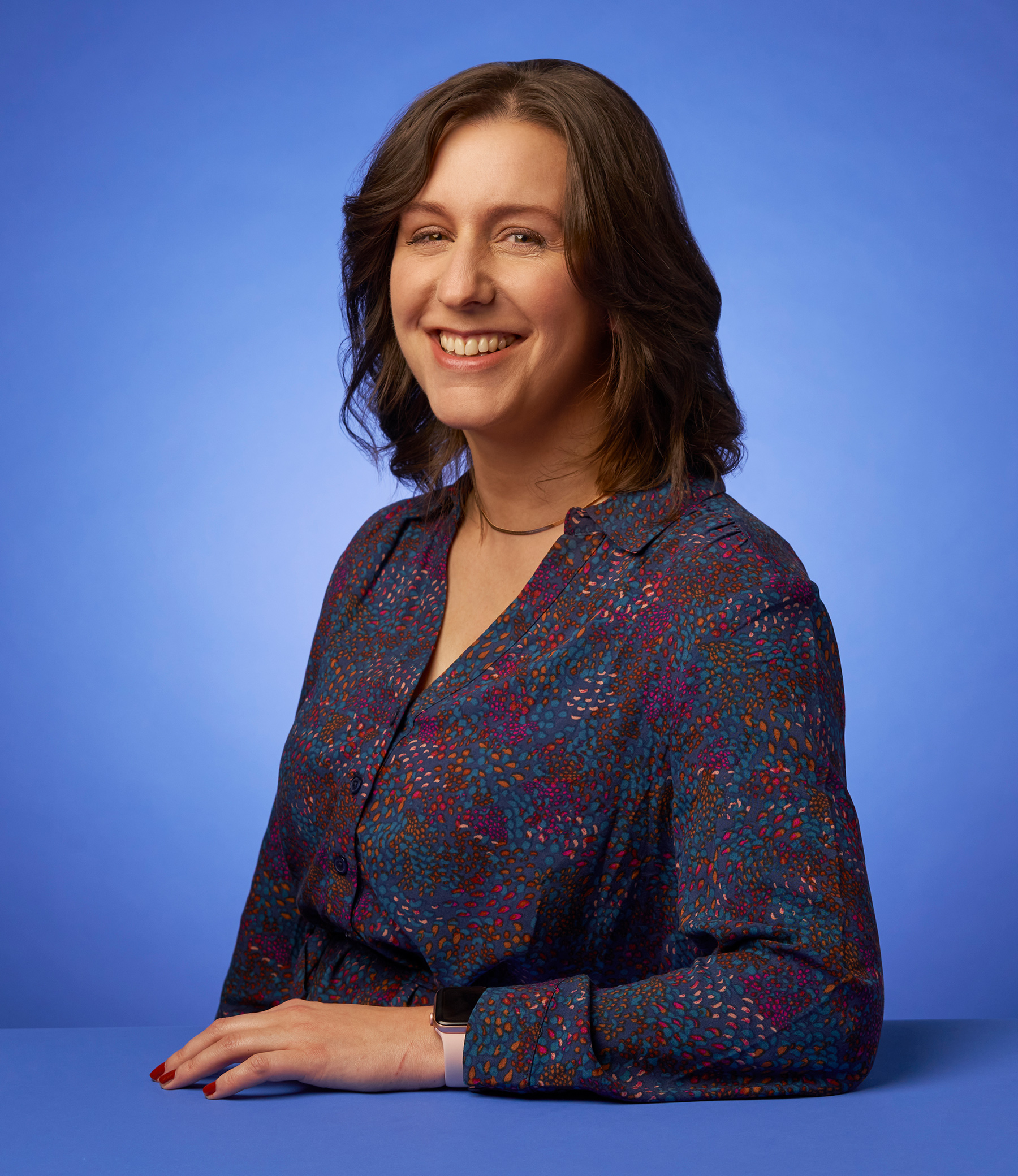
Sarah Daniels – The Stranded
It was a startling image of ships packed with people fleeing Europe during the Second World War that prompted archaeologist-turned-author Sarah Daniels to wonder: “What if those people never found anywhere safe to go?” From this grew The Stranded, a thriller set in 2094 on a cruise ship fleeing a war-torn Europe, stuck off the coastline of a country called the Federated States. Onboard are Esther and Nick, who are willing to risk everything to reach dry land.
"The people on this ship include multiple generations who have been affected by events that are completely out of their control”, the 40-year-old explains about the gripping – and timely – story. “I try to imagine what it would be like to live through that situation, and hopefully readers will be able to do that too."
When did it occur to you that you might want to be an author, and what was the catalyst?
As a kid being an author just wasn’t on the list of jobs suitable for people from a Midlands council estate. It just wasn’t on the cards. After university I ended up as an archaeologist and I had a wonderful supervisor who said to me that writing a science article is about finding a good story. In time I realised it's way more fun to make stuff up than having to find evidence, so eventually I gave up the science part and stuck with fiction.
What is your ideal writing scenario?
Ideally I’d be somewhere in the mountains, probably in a cabin. I could open the window and take in the view, and have loads of coffee and snacks. That's the dream scenario. But usually I'm at the desk and I'm trying to keep the kids outside, and the snacks aren't that good. But there’s always coffee.
Tell us about a book you’ve reread many times (and why)
I've never re-read a book but I do like retellings. There are certain stories that I’ll consume every version of. Wuthering Heights is one of my favourites that I keep coming back to, whether it is watching movies, listening to music or reading fan-fiction. If people were inspired by my book to do other stuff, that would be a dream come true.
The Stranded is out 21 July
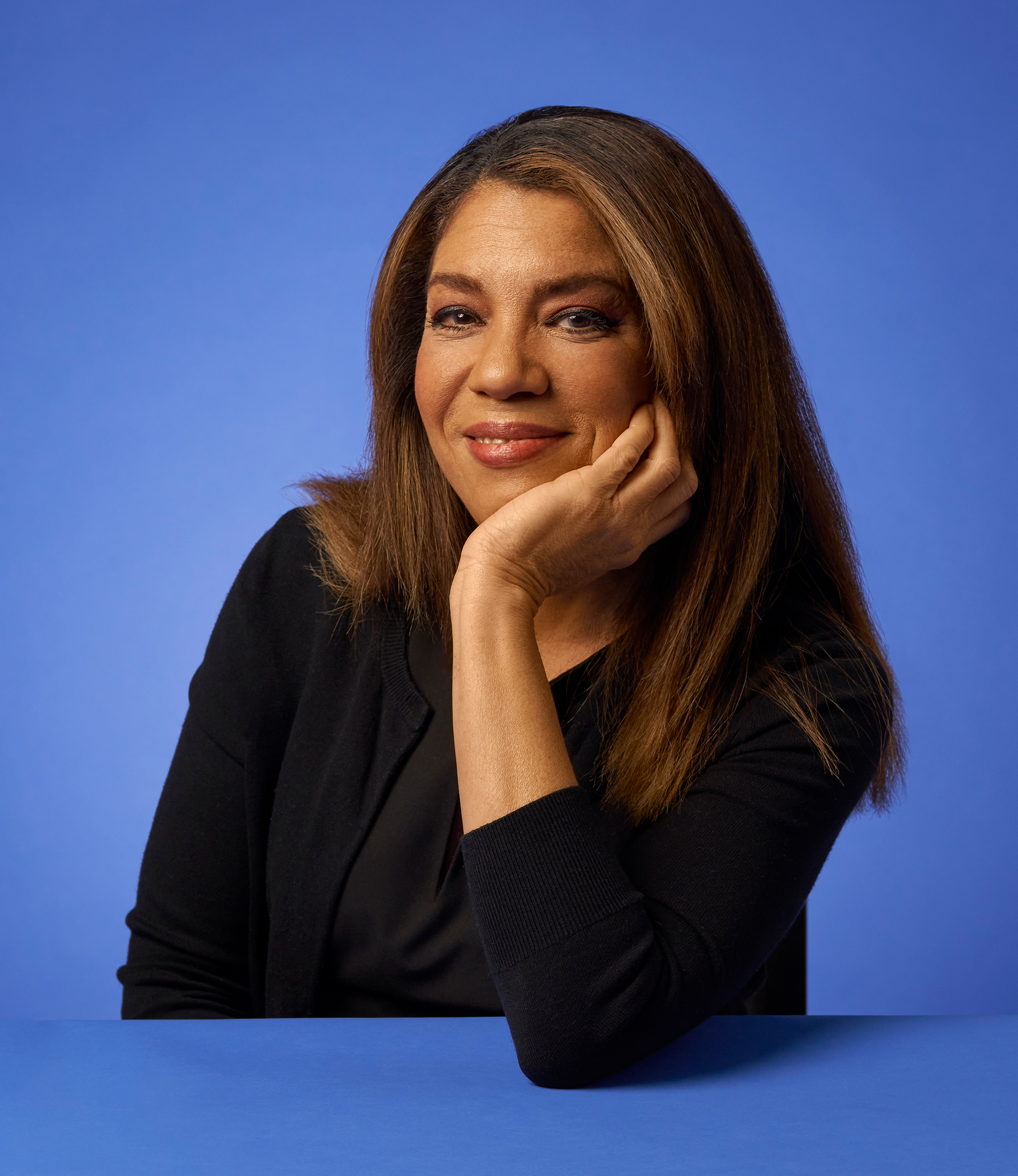
Charmaine Wilkerson – Black Cake
For American journalist Charmaine Wilkerson, it was the death of her father that galvanised her to realise a lifelong dream of writing fiction. “Black Cake is a multi-generational story,” she explains from Rome, where she lives. “In the present, the story revolves primarily around Byron and Benny, a brother and sister who hadn't been getting along but are forced to come together in the wake of their mother's death.” Their mother has left behind two things: “a black cake sitting in her freezer, and a long voice recording in which she shares a series of shocking revelations.” How can the siblings move forward, now their lives have been turned upside down?
“I tend to write as it comes to me, out of chronological order,” says Wilkerson, who is 59. “The hardest part was finding a compromise between my vision, which is like a wheel in which I can see all the different characters and timelines, and coming up with a story that can reach out to another reader.” Given that Black Cake’s twisting narrative has inspired Oprah to adapt it for a television series, we’d say Wilkerson’s succeeded.
When did it occur to you that you might want to be a novelist?
My father was a visual artist and died a little earlier than we'd expected. I remember thinking about how the secret to his artwork had been planning and strategy; to get up early and make it a priority. I just decided that I needed to pursue this dream of becoming a novelist by treating it like a job. I really needed to give myself permission to take my own interests seriously.
Which authors do you admire?
I love anything that Toni Morrison has written but I really love Amy Tan's writing; I love stories by Anne Tyler and anything by Elizabeth Strout, and Bernardine Evaristo, too. The connection between Strout and Evaristo is that both do unusual things with the storytelling structure. You don't quite get the story at first, you just walk in a side door and you think you're following one person, and then it turns out to be related to the next.
Are there any surprising inspirations behind Black Cake?
I didn't set out to write a story about food. But several years before, a younger member of my own family texted me asking for my mother's black cake recipe. She made a legendary black cake. I was surprised that he would care, and that started me thinking about how we choose to inherit tradition, family identity, culture, real food or other dimensions in our lives.
Black Cake is out 3 February
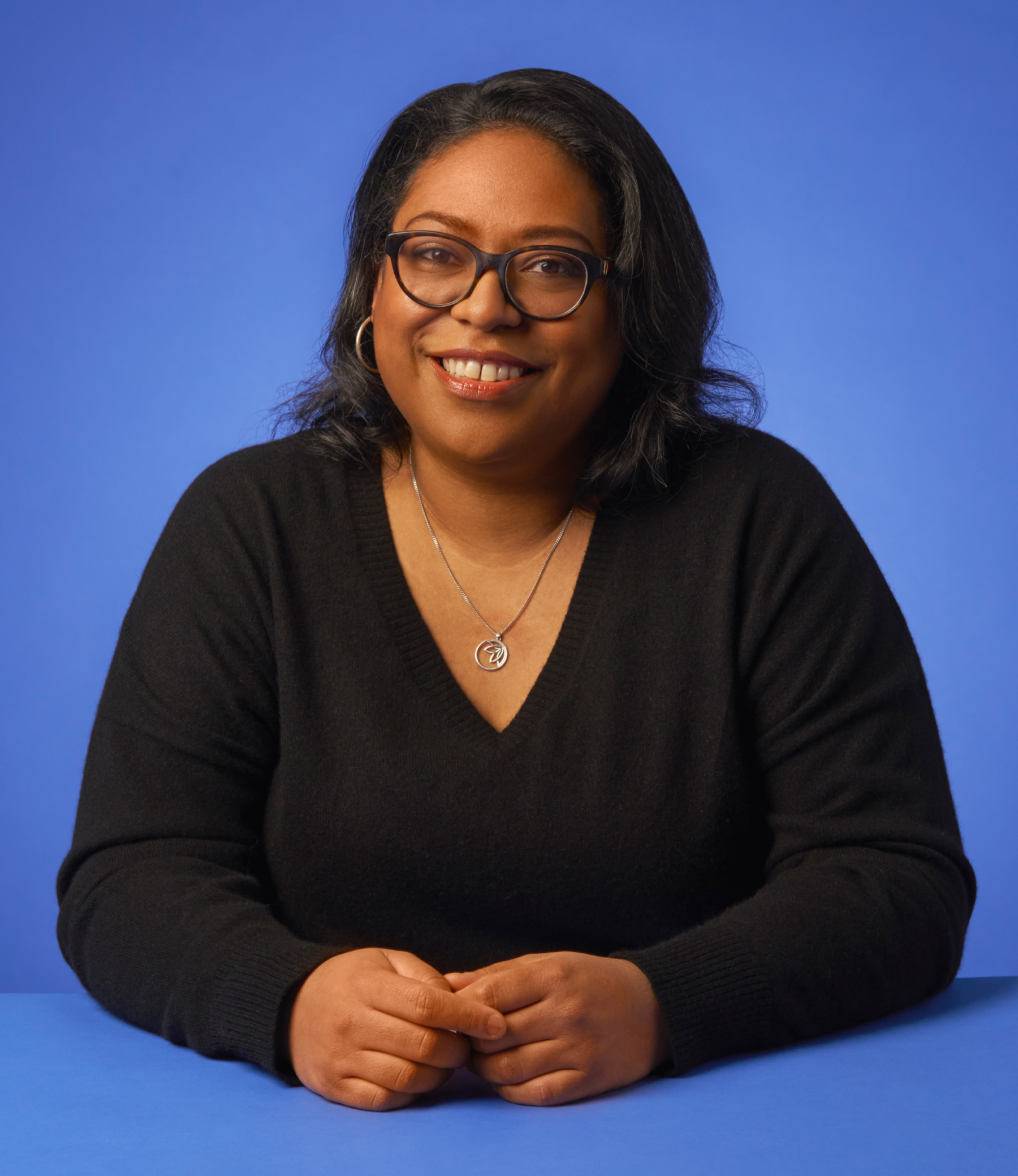
Lianne Dillsworth – Theatre of Marvels
For Lianne Dillsworth, it was a powerful quote by Toni Morrison that kept her motivated to write her debut, Theatre of Marvels: ‘If there’s a book that you want to read, but it hasn’t been written yet, then you must write it.’ “There aren’t many books featuring Black British heroines,” she explains, “and certainly not historical ones. I wanted to play a part in addressing that.”
The idea came to Dillsworth while she was researching Victorian popular culture, in particular so-called freak shows. “At that time there was a real fascination with difference – to modern sensibilities there’s something so discomforting about the Victorian gaze,” she explains. “I wondered what the performers were thinking while the audience ogled and gawped at them.” From this sprung her unforgettable protagonist Zillah, who plays the role of African warrior on stage. When another act goes missing, Zillah embarks on a mission to save her: “It takes her across London from the high-society drawing rooms of Mayfair to the slums of St Giles. Will Zillah find the woman, and in doing so, find herself?
Aside from Toni Morrison, which other writer do you most admire and why?
It’s hard to choose just one writer, but I’ll go with Tayari Jones, who wrote An American Marriage. That novel got me out of a reading slump – I think I finished it in a single day. There was so much truth in it, so much pain. I cried at more or less every chapter. An author that can provoke that reaction is admirable to me.
Have you ever lied about reading a book?
Wives and Daughters by Elizabeth Gaskell was one of my set texts at uni, but it’s hundreds of pages long and I’d run out of time to read it. When my tutor called on me for an opinion I said something about the protagonist’s mother dying too early on to form a judgement of her, which she does in the BBC adaptation but not in the actual text. No one called me out on it at the time but I was mortified when I read the book years later and realised she survives until about halfway through. It would have been so obvious to my tutor that I’d not read it. It still haunts me.
What is your ideal writing scenario?
I write around a full-time job, so it’s a matter of making any scenario work in order to get the words down rather than elaborate rituals. But if I’ve got a whole day or a specific task to do structural edits, I have movie soundtracks playing in the background, white noise through my headphones – beach waves crashing, usually – and my dog snoozing at my feet. Also fingerless gloves. Writing makes my hands cold.
Theatre of Marvels is out 28 April
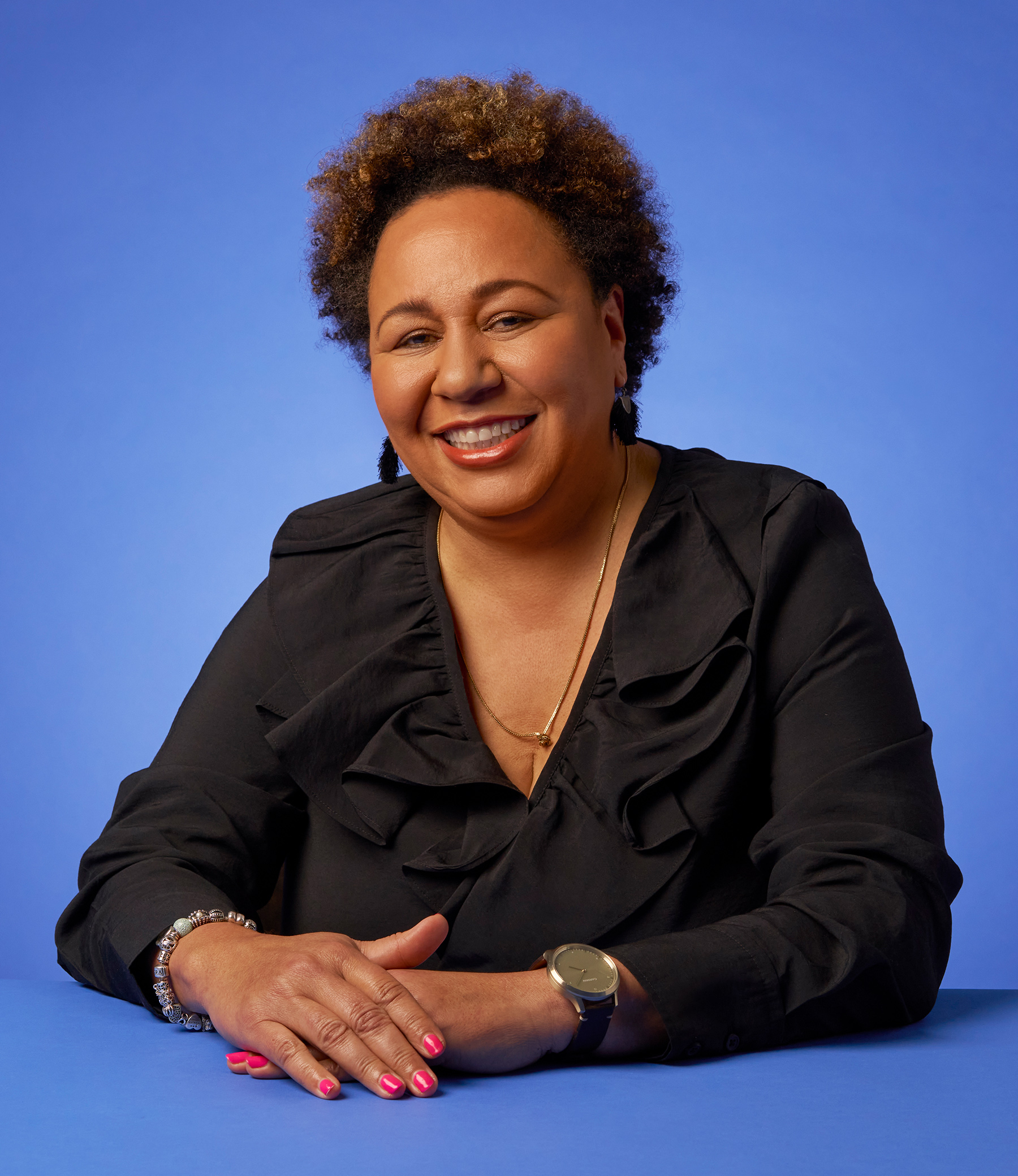
Nikki May – Wahala
Once a “proper London girl,” 56-year-old Nikki May moved to the West Country nearly two decades ago – but she still goes to the city to find the best Nigerian food. And it was there, at what she calls “a very long, very loud lunch with Nigerian friends,” that the idea for Wahala came to her: “As I boarded the slow train home, I started sketching out these three characters who were mixed race, and I’d written the first scene before I got to my stop.”
From there, main characters and best friends Ronke, Simi and Boo developed lives of their own, and Wahala – which translates to ‘trouble’ – was born. According to May, “people refer to Wahala as ‘Sex and the City with a killer twist’, and I quite like that. But to me, it's a modern, subversive, dark take on friendship, family, culture and race – and it’s underpinned by a rather epic revenge story.”
When did it occur to you that you might want to be an author?
I was about 11 years old, and I lived in Lagos, and books were hard to come by – fiction particularly. So I read whatever I could get my hands on, and I remember vividly reading Ice Station Zebra, by Alistair MacLean – probably at an inappropriate age. But I was transfixed. I was terrified. I was thrilled. I stayed up way too late because I had to get to the end and find out what happened. And I think I can date falling in love with books to that very moment. That’s when writing became the dream job.
Had you tried writing a novel before this, then?
No, believe it or not, I hadn’t. I’ve always written. I wrote dodgy, angst-ridden poetry as a teenager, and I worked in advertising most of my working life, so I wrote for clients: I wrote technical copy for telecoms clients, cookery books, books on mindfulness. So writing was part of my life. I write to work things out, so I’m always doodling, always sketching out thoughts. I’ve always wanted to write a book, but I let other things, work, get in the way – until I didn't.
Tell us about an unlikely influence on your debut book
While I was writing Wahala, I was watching Killing Eve. And I think Villanelle might have somehow got a bit into Isobel: it’s that wardrobe, for starters; the Russian background; that cold-bloodedness; and the humour. I absolutely love Killing Eve, so I do think I possibly popped a bit of Villanelle in there.
Wahala is out now
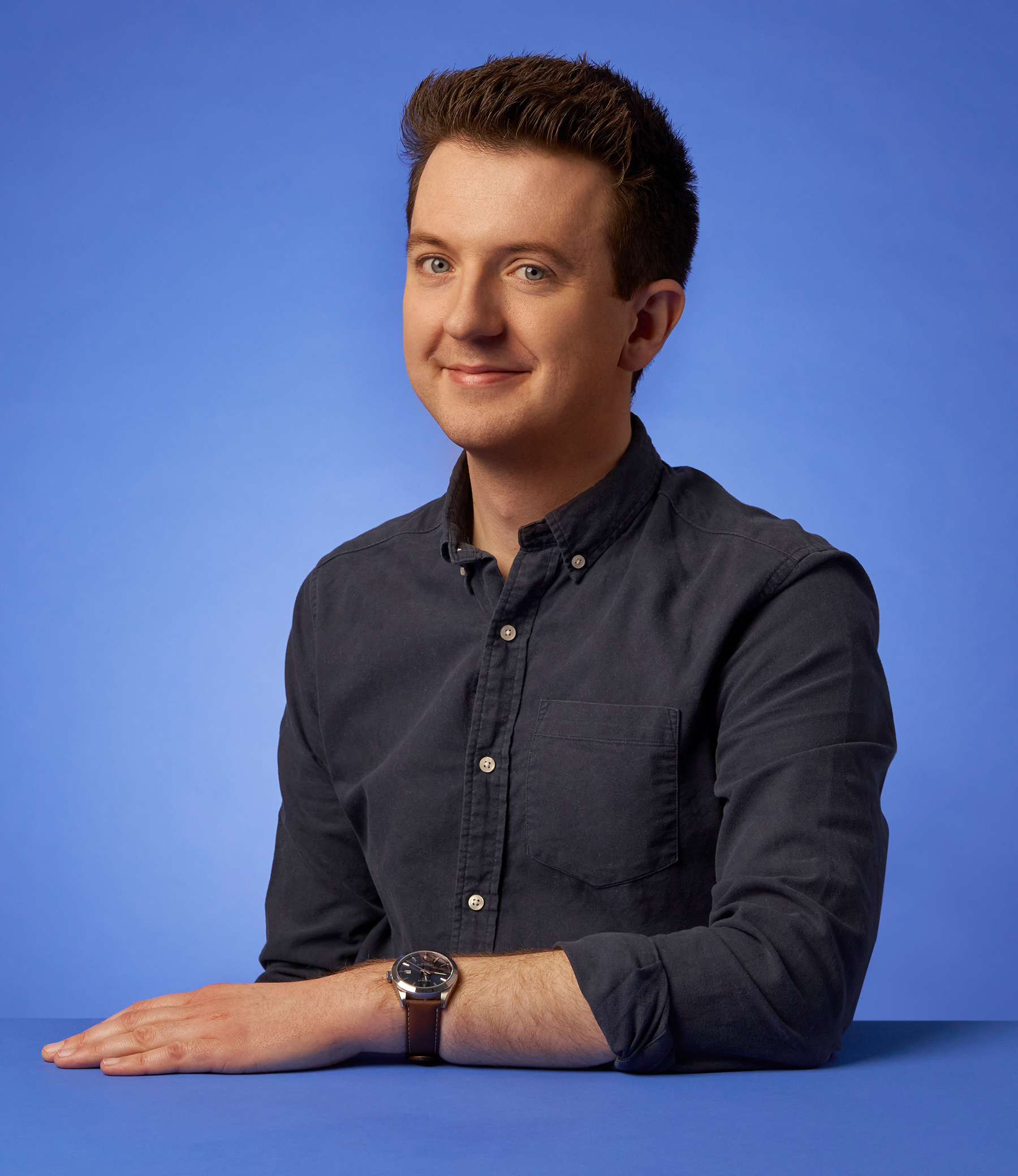
Tom Hindle – A Fatal Crossing
After two years spent cooped up at home, readers will love the premise of Tom Hindle’s rollicking debut A Fatal Crossing, a golden age murder mystery set on a 1920s cruise liner. Or, as the author himself puts it, “Think ‘Agatha Christie meets Titanic’, and you’ll be on the right track.” According to the 28-year-old Hindle, he first had the idea for the book over ten years ago while a sixth former in Leeds and watching a lot of Frasier and Jeeves & Wooster: “I was hoping to strike a similar sort of tone,” he says.
The small screen influence on A Fatal Crossing doesn’t stop there, either. “The story takes place entirely on board a ship crossing the Atlantic,” Hindle explains, “but we hear quite regularly about a gang of criminals who are up to some really nasty stuff in both London and New York. I’m a huge fan of Peaky Blinders, and I think my love for that show really bled over into those sections of the book.”
Which writer do you most admire and why?
If I had to choose one, it would probably be Anthony Horowitz. The first book I ever bought with my own pocket money was an Alex Rider story, and it was while reading his amazing Magpie Murders that I decided I was going to try writing my own novel. I can’t think of many other authors who I’ve actually read for most of my life, nor who have had such an impact on my own passion for both reading and writing.
Have you ever lied about reading a book?
I don’t think I’ve ever lied, but when I was a teenager, I definitely hid the fact that I was reading the Twilight series. Not that I was ever particularly cool to begin with, but I remember worrying about what my friends would think if they knew I was reading about Edward and Bella!
What were some of the challenges of writing your book?
There was the small matter of learning enough about the workings of a 1920s cruise liner that I could proficiently write about it. I can remember at one point spending a whole hour trying to confirm whether the thick ropes that you see suspended between the funnels to the deck were called rigging. There was no shortage of those sorts of challenges.
A Fatal Crossing is out now
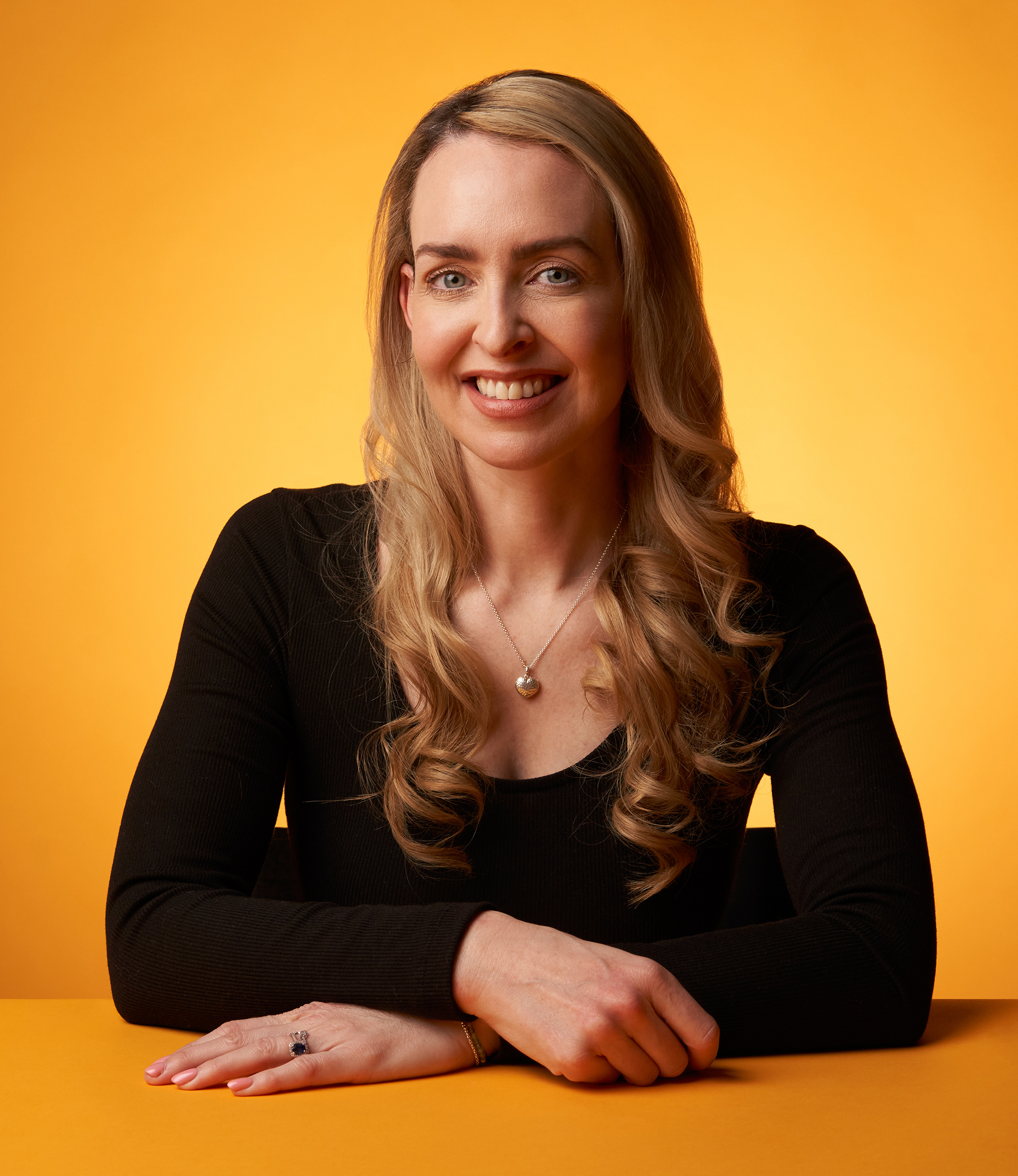
Claire Alexander – Meredith, Alone
Sometimes, a debut novel comes to a writer fully formed; other times, they must work painstakingly, chipping away at the story to perfect it. For Claire Alexander, the 44-year-old Scottish author behind the tender, hopeful debut Meredith, Alone, it was a case of the latter: “I tend to get a vague sense of a character, and then it kind of just slowly comes to life. It’s almost like I have to sort of coax a story out of them; I really spend time in that space, let it happen and then help it along.”
In this case, the character she helped along – smart, charming Meredith Maggs, who hasn't left her home for a very long time (1,214 days to be precise) – provides a powerfully relatable central character for anyone who has experienced trauma and looked – or is looking – for a way back. “Meredith says she's happy the way things are,” Alexander says of her protagonist, “but then things change, and Meredith has to figure out: Can she overcome what happened in her past, to enable her to leave her house?”
Your novel deals with some sensitive themes, including abuse. Were you nervous at all?
Not when I was writing it, but I guess just before the proofs went out to people I maybe felt slightly apprehensive as to how people would respond. But so far the feedback has been good. Meredith, Alone does deal with some pretty dark themes, but I think overall, people have come away uplifted by it. I want people to see her as a hopeful character; obviously, Meredith’s past trauma is the reason she's in this situation now, but I try not to focus on that too much because there's so much more to her.
Which writer do you most admire and why?
I don't think there is a single writer; I have real admiration for any woman who writes and publishes books at the same time as raising children, often working part-time or full-time. Time is such a luxury when you're unpublished; nobody's paying you to write that debut, so you’re investing so much. I really admire women who somehow managed to do it.
What’s your most surprising passion or hobby?
I've just gone back to ballet quite recently, but it's been a passion throughout my life. You probably have to know me to maybe be surprised by that, but I'm quite clumsy. But I go to adult ballet classes, and I just love it; it helps me become more relaxed and mindful.
Meredith, Alone is out 9 June
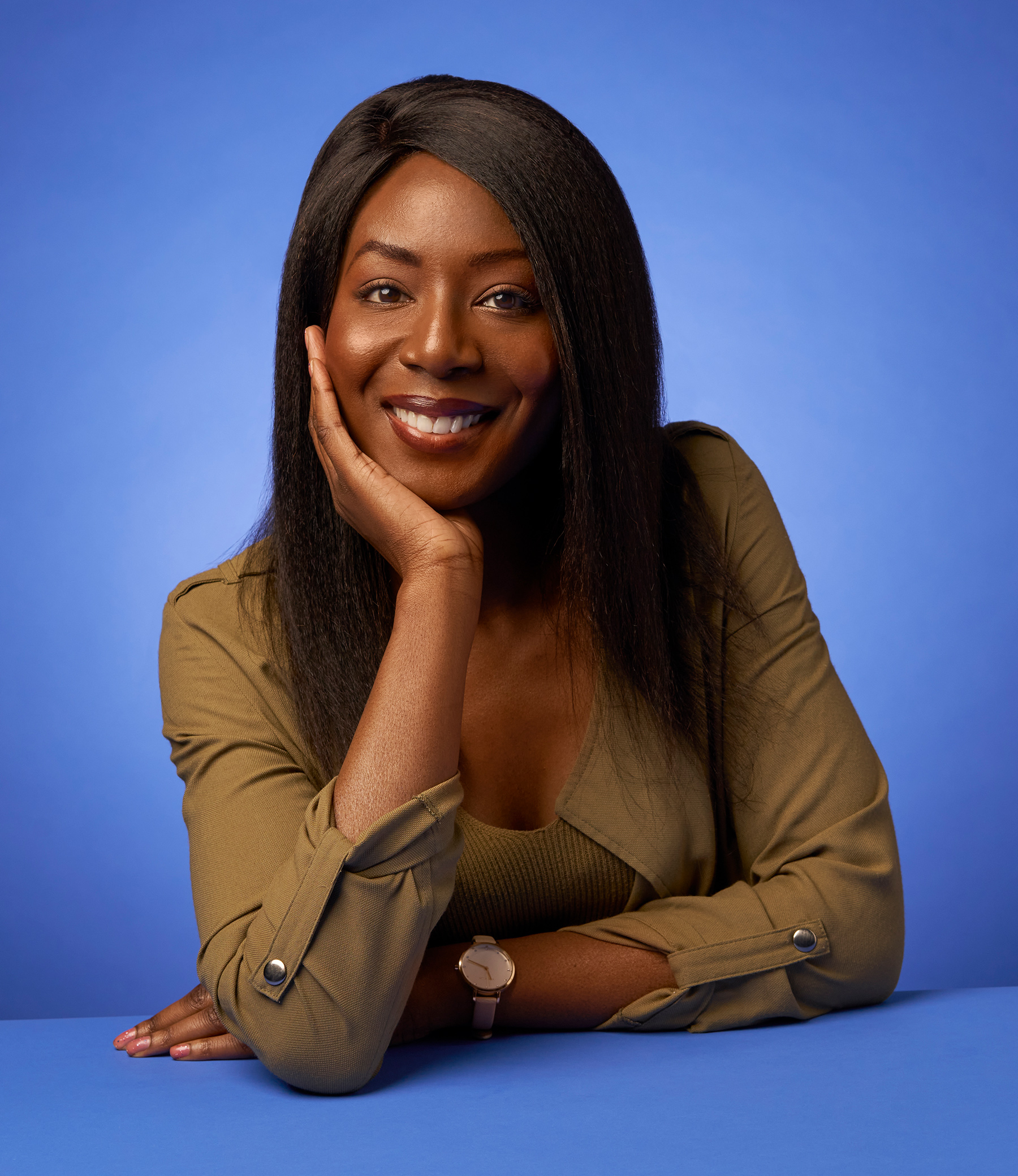
Lizzie Damilola Blackburn – Yinka, Where is Your Huzband?
“I like to describe it as the hit TV show Insecure meets Channel 4's Chewing Gum, meets Peckham,” says Lizzie Damilola Blackburn of her debut novel, Yinka, Where is Your Huzband? It’s an intoxicating, heady and undeniably fun combination, in which the titular character attempts to take her “hot mess” of a love life into her own hands, and hatches a plan to find a date ahead of her cousin’s wedding.
Blackburn’s lovable Yinka started out as a short story character the author created when she found a distinct lack of mainstream fiction featuring Christian characters. “That's why I decided to write one,” says Blackburn, who is in her early thirties. “But also, my dear mum was pressuring me to settle down. So I used all that as inspiration to write a story about a British Nigerian woman in her early thirties going through the same thing. In addition to being a love story, it's also a story of self-discovery, which Yinka goes on with the help of her amazing friends."
What’s your ideal writing scenario?
Do you know what I just love to be like? Warm and cosy. I love it when it's raining outside. I tend to have my hot water bottle, my fluffy slippers and my scarf around me. And snacks on standby. I kind of like to feel like all cozy and because I don't have like a fireplace in my flat, I use the crackling fireplace on loop on YouTube. So I have that on the TV screen!
Is there a particular book that you find yourself re-reading?
When I realised my writing voice was witty, I discovered writers such as Lindsey Kelk and Sophie Kinsella and I absolutely loved them. If I feel like I need to awake my writing voice, I always like to go back to reading or listening to their books. But I often find myself going back to Kelk’s Always the Bridesmaid, about a wedding planner with a hopeless love life. It’s hilarious, and warm and funny, and I just love Lindsey’s voice. If I need a reminder of how to do it, that’s the book I reach for.
Do you have any surprising hobbies?
I'm really into true crime documentaries. I can easily watch, like, eight episodes back-to-back; my husband thinks that it's very creepy! But I think what I what I find very interesting is how the detectives gather evidence to find the killer. But it's crazy because I don't tend to read crime novels and I've never tried to write one. Perhaps it's something I should try – I just wonder how it would inspire me.
Yinka, Where is Your Huzband? is out 31 March
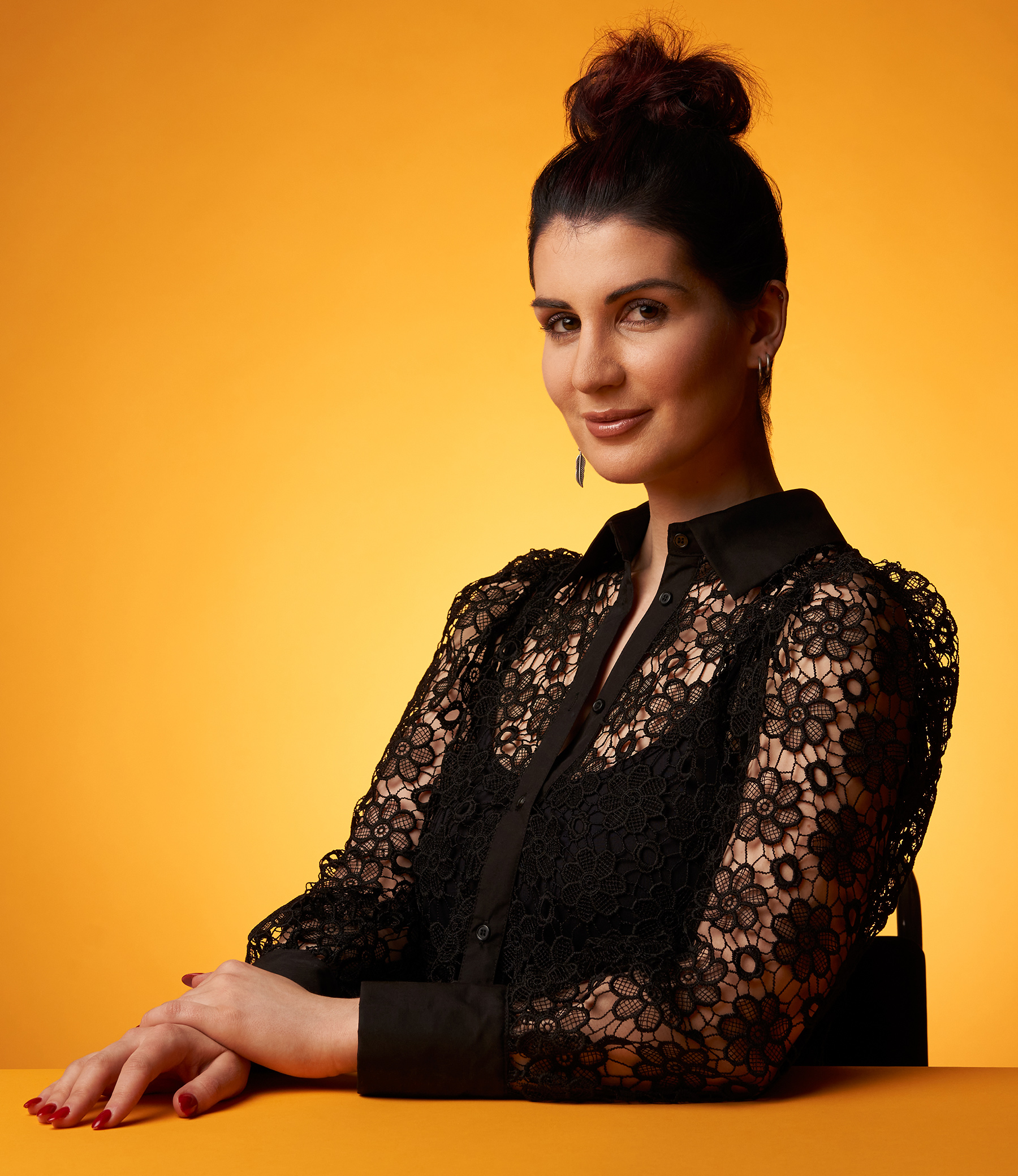
Kat Delacorte – With Fire in Their Blood
Kat Delacorte’s With Fire in their Blood is a seductive contemporary fantasy with a romantic spin, or to put it in the author’s own words, a story that is “gothic, sexy and action-packed”. It follows Lilly, a teenage girl who relocates with her father from the US to the isolated Italian hilltown of Castello, where two rival mafia clans burn witches at the stake and she becomes entangled in a love-square between the rebellious Liza, the sensitive Christian and brooding Nico, who all have secrets to hide.
It draws on Delacorte’s own experiences moving to a remote Italian town aged 11. “There was so much beautiful dark, old architecture” she explains “and I started to imagine, what else could be going on here?” Despite being welcomed into the small community, there was part of herself Delacorte felt unable to share. “I could never tell any of them that I liked girls. It was a very confusing experience and I feel I spent my childhood trying not to make myself ‘other’ on purpose because I was afraid of rejection.” It was an experience that also feeds the character of Lilly, who “feels much more comfortable about who she is. That is something I wish I had at her age.”
What is it about fantasy books that you love?
I write fantasy books because I think they're so freeing – you get a chance to really step out of your reality. My book is contemporary fantasy, but especially with high-fantasy, I think people love it so much because you are completely lost in a different world. And none of the things that matter in your world need to matter in that world. And you can be whoever you want to be.
Which writer do you most admire and why?
I like the way Gillian Flynn and Elena Ferrante write women. They're not afraid to have them be so raw and to make you feel uncomfortable while you're reading it because you're delving so deep into this woman's wants and desperations. They write about women who are so deeply flawed and I really admire that – I think it’s really brave. But Stephen King is my favourite writer and well, he’s the reason that I write.
If I didn’t become an author, I would be…
A platform diver. I was really good at swimming and diving as a young kid. For some reason my parents did not push me into that route and there are times when I think, "why am I not a platform diver? I would have been nailing it!" All that talent gone to waste.
With Fire in Their Blood is out 4 August
Photography: Stuart Simpson and Desiree Adams / Penguin